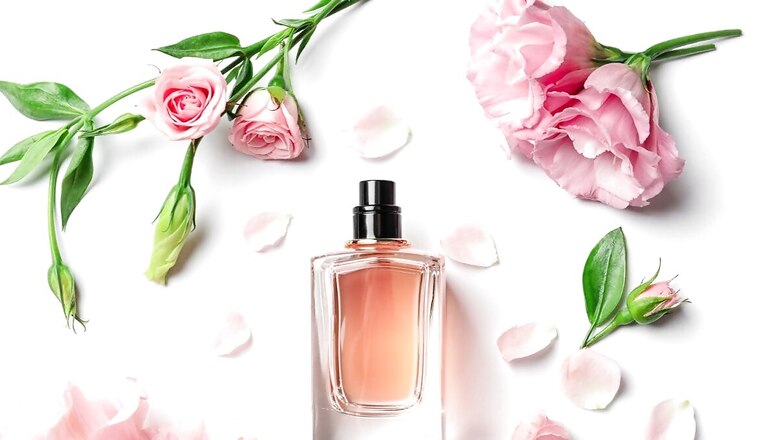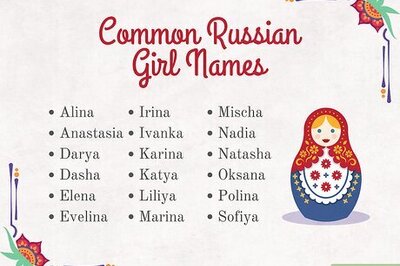
views
In the realm of perfumery, the fragrances of India have long held an illustrious place, with scents like Jasmine, Oudh, Sandalwood, and Rose weaving through the tapestry of the nation’s cultural heritage. These iconic aromas, deeply rooted in tradition, continue to inspire modern perfumers, bridging the gap between the rich history of Indian fragrances and contemporary olfactory experiences.
Manoj Arora, Managing Director, Sacheerome, delves into the historical significance of these iconic Indian scents, highlighting their traditional use and global recognition. “No modern perfume is complete without inclusion of one or more of these Indian notes,” says Arora. He emphasizes the essential role these fragrances play in everyday life, transcending borders and evoking deep emotions.
Traditional Indian scents like Jasmine, Oudh, and Sandalwood were once symbols of luxury and prosperity, deeply intertwined with religious rituals and ancient trade routes. However, the evolution of perfumery has seen these scents adapt to suit modern consumer preferences, blending seamlessly with contemporary fragrance compositions.
Perfumers today draw inspiration from India’s vast assortment of aromatic flowers, herbs, oils, and spices, crafting opulent olfactory experiences that resonate with global audiences. Luxury brands like Chanel and Lancome have incorporated Indian fragrances such as Madurai Jasmine and Mysore Sandalwood Oil into their renowned perfumes, showcasing the enduring appeal of these timeless scents.
The challenges of bridging tradition and innovation in perfumery are not lost on industry experts. Perfumers must balance the allure of ancient scents with the drive for innovation, honoring established methods while pushing boundaries with new scent extraction and blending technologies. “Change is a phase, it’s not a challenge,” says Arora. “In India, we are embracing change at a faster pace than numerous developed nations.”
Esha Tiwari, Founder, Kastoor, emphasizes the importance of education and cultural storytelling in maintaining authenticity. “Exploring your own unique storytelling is essential to ensure authenticity,” says Tiwari. “We need to have the youth as culture ambassadors, presenting the story with an invigorating new twist, making culture cool.”
Tiwari’s approach to marketing Indian-inspired perfumes, branded as “Modern Ittars,” focuses on retaining cultural nuances while appealing to contemporary sensibilities. By highlighting traditional artisan techniques like the Deg Bhapka method of hydro distillation, Tiwari ensures that each fragrance embodies the essence of India’s rich perfumery heritage.
When it comes to sourcing ingredients, sustainability and ethical practices are paramount. Tiwari advocates for the use of cruelty-free alternatives and emphasizes the importance of working in harmony with the land. “We have to work with the land and not against it,” says Tiwari. “Sustainability is a 360-degree upliftment of the ecosystem, including community upliftment.”
In terms of inspiration, perfumers draw from a rich tapestry of Indian communities and regions. “Region-wise, Kannauj is the celebrated perfume capital of India,” explains Tiwari. “Its strategic location and rich soil make it a hub for indigenous ingredients like Rose, Jasmine, and Vetiver.” Community-wise, perfumery in India dates back centuries, with artisanal techniques passed down through generations.
Looking to the future, Tiwari foresees a fragrant revolution in Indian perfumery, driven by changing scent sensibilities and globalization. “India is seeing a fragrant revolution, demanding its due on the global perfumery scene,” says Tiwari. Brands like Kastoor are at the forefront of this movement, offering modern interpretations of traditional scents that appeal to both domestic and global audiences.
As India continues to reclaim its place as a central player in the global perfumery industry, the intersection of culture and fragrance promises a sensory experience unlike any other. With a blend of tradition and innovation, Indian-inspired perfumes offer a unique olfactory journey that captivates the senses and celebrates the rich heritage of the subcontinent.

















Comments
0 comment